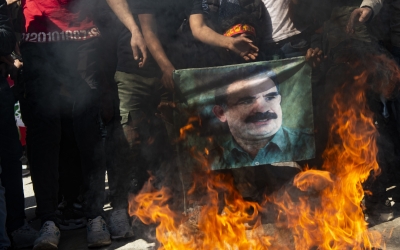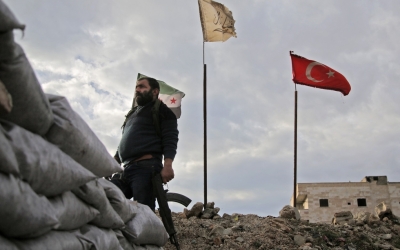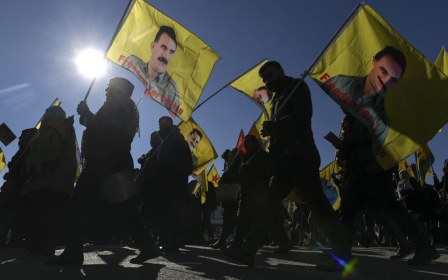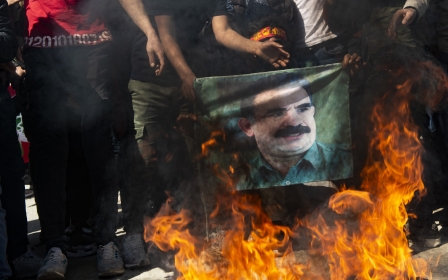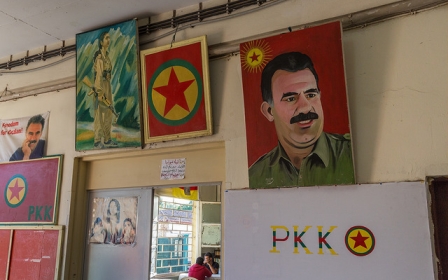Turkey held talks with PKK leader Ocalan in bid to resolve Syria issues
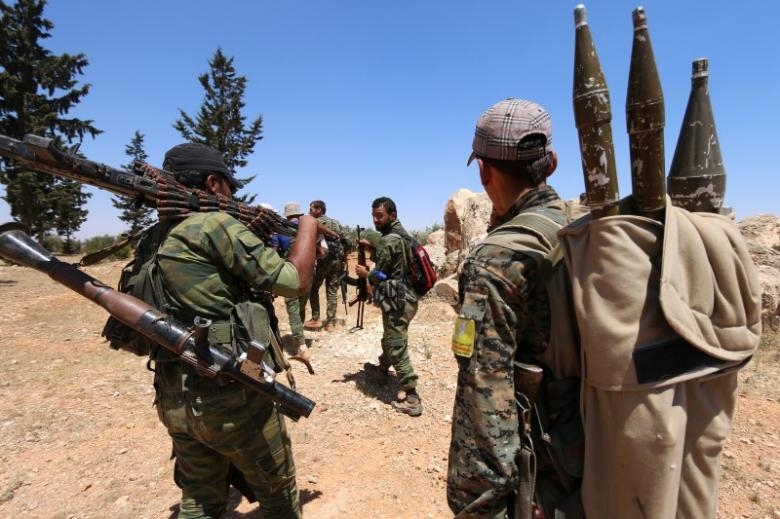
“At last, the light is seen at the end of the tunnel,” Ilhami Isik told his friends.
He was happy to learn that after an eight-year-long break, the Turkish government had allowed Abdullah Ocalan, the imprisoned leader of the Kurdistan Workers’ Party (PKK), a formerly Marxist militant group that has been locked in conflict with the Turkish state for more than 30 years, to meet his lawyers.
For Isik, a conservative Kurd from the Turkish city Batman who has brokered several talks between Turkish officials and PKK representatives in the past, the sign was clear. Following the collapse of the peace process between the PKK and Ankara in 2015, this was a first step to re-establish communications.
'It is important to have a base understanding to discuss. We have it. And once you have it, every detail can easily be sorted out'
- Ilhami Isik
On Monday, Ocalan’s lawyers shared a short statement signed by the PKK leader. It mentioned resolving problems based on democratic negotiations, but it had a surprising element: Syria.
The statement read: “We believe, with regard to the Syrian Democratic Forces (SDF), the problems in Syria should be resolved within the framework of the unity of Syria, based on constitutional guarantees and local democratic perspectives. In this regard, it should be sensitive to Turkey’s concerns.”
Double dealings
Syria couldn’t be more relevant to Turkish officials, who have had huge concerns about northern Syria since 2014.
The SDF, spearheaded by the People’s Protection Units (YPG), the PKK’s Syrian armed wing, have rapidly captured towns from the Islamic State group (IS), with help from the United States.
Turks have accused the US of having a hypocritical relationship with the YPG. “While putting bounties on PKK leaders and declaring them terrorists, they work with them in Syria,” Turkish officials have said at every possible opportunity to the media, referring to the US designation of the PKK as a terrorist group.
Over time, the SDF has established a power base reaching from the Turkish border to Deir Ezzor in the south.
Turkish President Recep Tayyip Erdogan has repeatedly told his US counterparts that there is a limit to Ankara's patience over its perceived double dealings and presence in Syria.
“Daesh [IS] is defeated, why are you still there?’ he kept asking earlier this year, making clear he wanted any US soldiers gone so he could create what Turkey describes as a safe zone in the north of Syria.
American moves
In order to help solve the problem, US President Donald Trump in August appointed veteran diplomat, James Jeffrey, as special representative for Syria engagement.
For several months, Jeffrey and his team were visiting Turkey and then travelling to Syria to meet senior SDF officials to discuss a 20km-deep safe zone in the border area between the two countries.
US officials were finding it hard to convince their Western allies to man the zone, and the SDF didn’t want to have Turkish soldiers near Kurdish-majority cities.
Isik said the stalemate forced the US to be more creative. “Now they are the mediator between Turkey and the SDF,” he told Middle East Eye.
“The statement itself is proof that Turkish officials have already met Ocalan," he said.
“They reached an understanding for further discussions. This is why Ocalan released this statement.”
Several US officials in the past have raised the idea of resolving the problem in Syria by tying it to Turkey’s own Kurdish question.
Turkish officials repeatedly refused that option because they didn’t trust the Americans, especially Brett McGurk - whose role as special envoy for the Global Coalition to Defeat ISIS (IS) Jeffrey took over in January - who had close ties to the YPG.
However, it seems Jeffrey, who is respected by Erdogan, was able to cultivate a new approach.
“Americans want to sort out the problem before leaving Syria. They have other priorities, like Iran,” Isik said.
“If you want to convince the PKK leaders in the Qandil mountains, you need Ocalan’s support. He is still the leader.”
Framework for further discussions
The general commander of the SDF, Ferhat Abdi Sahin, known as Mazlum Kobane, told local media over the weekend that the SDF was having indirect talks with Ankara.
“We are ready to have talks for dialogue, negotiation and peaceful ways to resolve the problem,” said Sahin, a former PKK fighter who was reportedly close to Ocalan when he was based in Syria prior to 1999.
Several sources said Sahin was a familiar face to Turkish officials, since he was in charge of the PKK's attempts in Europe in the late 1990s to discuss a ceasefire between Turkey and the PKK.
One Turkish source with knowledge of the matter, who wanted to remain anonymous, told MEE that officials from Turkey's National Intelligence Agency (MIT) had already met Sahin.
"They met in late March. Officials also visited Ocalan 15 days ago. Then the lawyers met Ocalan last week," the source said.
Isik says because the war has essentially ended in Syria, Turkey and the SDF now have an incentive to talk.
He believes Ocalan’s statement crafted a framework for further discussion for all sides involved.
“It is important to have a base understanding to discuss. We have it. And once you have it, every detail can easily be sorted out. The most important thing is willingness.”
Isik, for now, doesn’t have high hopes high for resolving Turkey’s own conflict with the PKK, yet he says if a breakthrough could be reached in Syria between the parties, it would most likely invoke a new peace process in Turkey.
“Ocalan made clear that he is ready to go back to the 2013 conditions he laid out and start negotiating again. But we will have to see,” he said.
Middle East Eye propose une couverture et une analyse indépendantes et incomparables du Moyen-Orient, de l’Afrique du Nord et d’autres régions du monde. Pour en savoir plus sur la reprise de ce contenu et les frais qui s’appliquent, veuillez remplir ce formulaire [en anglais]. Pour en savoir plus sur MEE, cliquez ici [en anglais].



